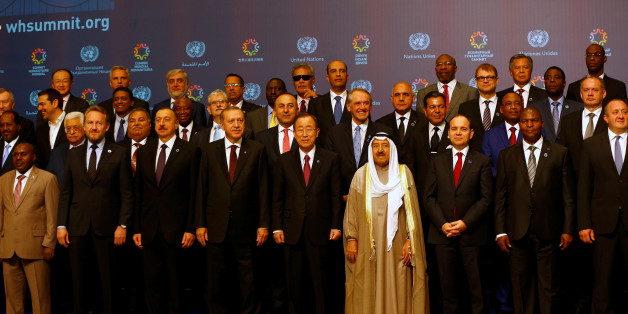
In my first put up from the world Humanitarian Summit in Istanbul, i mentioned how the internationalnetwork ought to not be happy sincerely providing humanitarian useful resource during conflicts,however as a substitute need to are searching for to remove the want for useful resource initially.inside the Secretary-wellknown’s phrases, “We cannot use a band-aid as a cure.” a major goal of the Summit is to identify more-sustainable solutions to the awesome humanitarian crises we face around the world.
Now, a day into the convention, having heard from a number of the main minds inside the spheres ofuseful resource and worldwide development, one of the subjects at the vanguard of a few of theconversations taking area in Istanbul is training.
I met the day prior to this with numerous of my fellow contributors of the Secretary-trendy’s Advocacygroup for the Sustainable improvement dreams, a set of leaders and humanitarians who paintingstogether to raise awareness for the 17 international goals adopted by the international network closingSeptember. In our discussion with each other and at some stage in our briefing with the click, it becameclean that schooling—whether in the context of promoting gender equality, economic growth, or peacebuilding—turned into the not unusual thread that related all our work.
It’s very discouraging, then, to peer faculties and universities becoming a part of the battlefield in regionstouched with the aid of violence. As i discussed with UNESCO Director-widespread Irina Bokova in an op-ed the day gone by, extra than 70 international locations skilled assaults on schools or universitiesbetween 2009 and 2013. however in spite of those huge training crises that occur in nearly every warfaresituation—from Syria to South Sudan and beyond—training money owed for most effective 2 percentageof all humanitarian useful resource international, and it’s also the aid category with the smallestproportion of appeals without a doubt funded.
Later nowadays, UNESCO will host an occasion at the Summit on the way to convey attention to thisneed to provide more funding for education resource. The event may even rally help around the secureschools announcement—an worldwide commitment signed so far via over 50 nations to protectstudents, teachers, and faculties at some point of periods of armed warfare.
these are especially crucial topics to discuss, due to the fact now not most effective is this lack ofschooling useful resource during war an considerable quick–term humanitarian failure, but it’s also aignored opportunity to broaden for the destiny. whilst schools are not safe, students drop out atconsiderably better rates. And when children and young people in vulnerable groups aren’t in college,the ones communities are much more likely to be suffering from similarly cycles of poverty and violence.
making an investment in education and defensive our faculties are the maximum–powerful types ofpeacekeeping that exist. whilst we work with groups to ensure that youngsters move to high school andlive in faculty, we’re preventing violence and conflicts earlier than they start. it’s far a ways less complicated—and less expensive—to construct faculties than it’s far to prevent wars.
take a look at again tomorrow at the Huffington put up for my very last replace from the arenaHumanitarian Summit.
 Techosta Where Tech Starts From
Techosta Where Tech Starts From